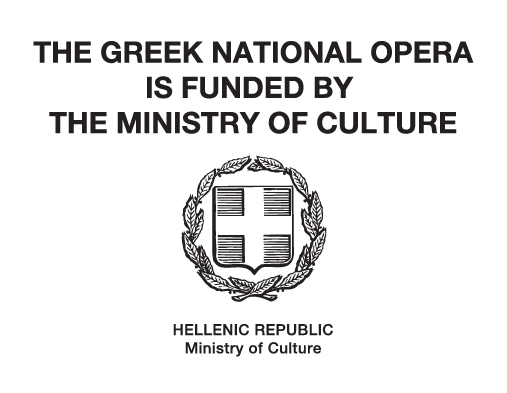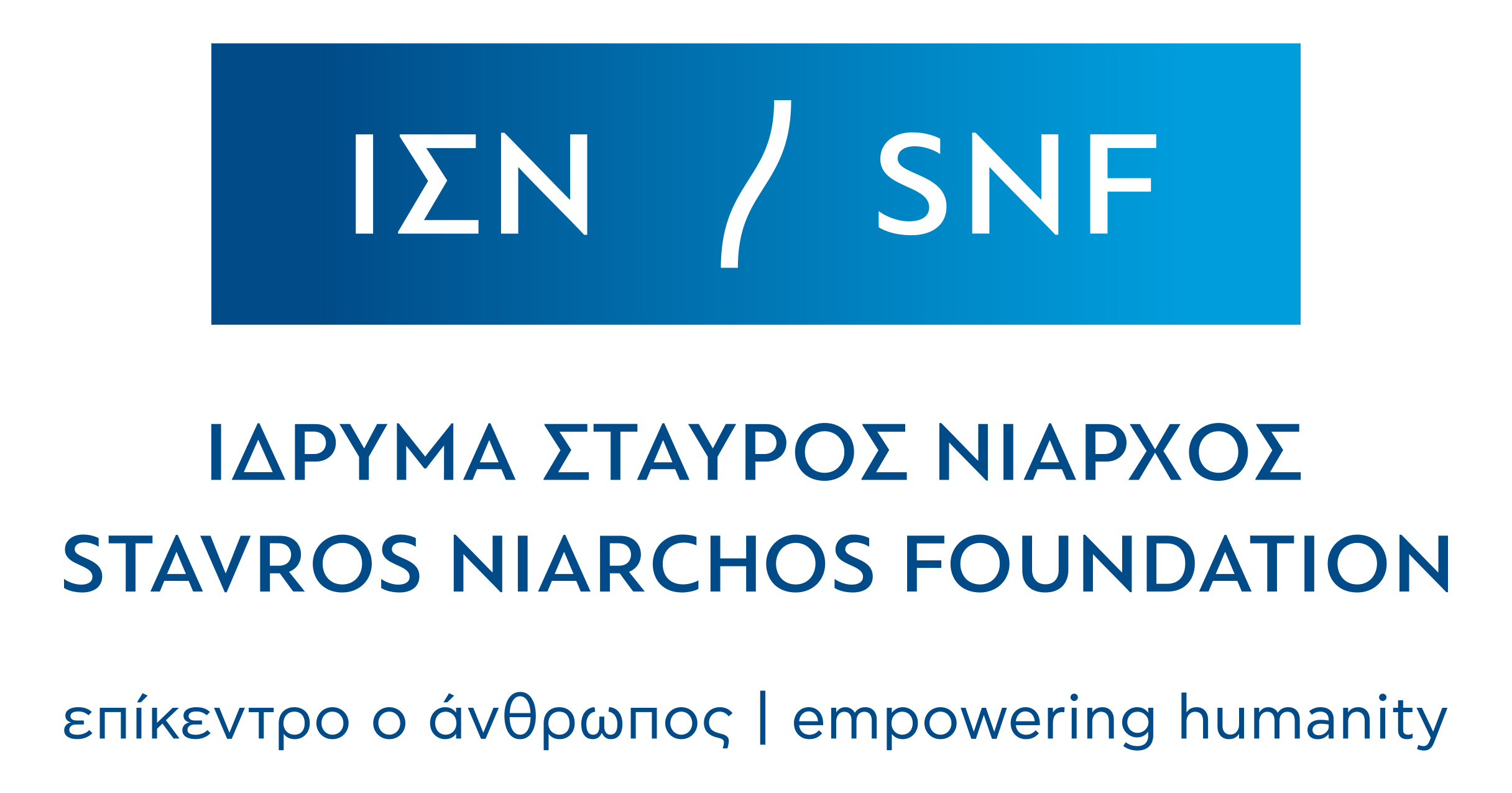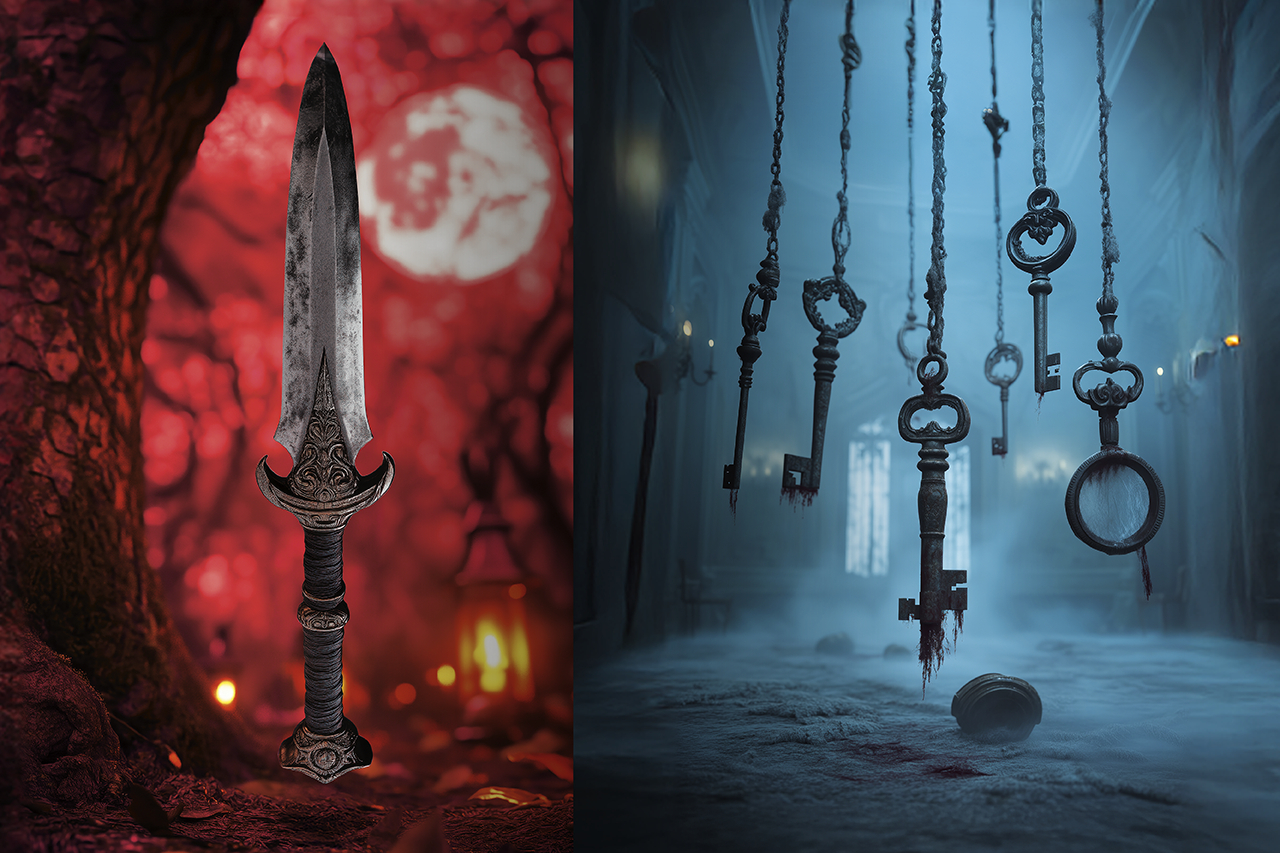
�
Lead Donor of the GNO & Production donor
�
�
Production sponsor

�
�Media Partners

�
�
The Greek National Opera presents a captivating double bill of two masterful one-act operas that explore the transcendence of mental boundaries, written at the cusp between the 19th and 20th centuries.
The GNO has assigned the stage direction of the new production of Rachmaninoff's Aleko to the unique Fanny Ardant, five years after her remarkable success with Lady Macbeth of Mtsensk.
The exceptionally successful stage direction of Bluebeard's Castle carries the signature of Themelis Glynatsis.
The opera double bill will be presented for six performances, starting on 12 November, in the Stavros Niarchos Hall of the GNO at the Stavros Niarchos Foundation Cultural Center, conducted by Fabrizio Ventura.
The production will be filmed and broadcast worldwide by Mezzo TV and medici.tv in December, with the support of a grant from the Stavros Niarchos Foundation (SNF) to enhance the GNO's artistic outreach.
Aiming to expand its repertoire even further, the Greek National Opera presents one more ambitious opera double bill in the 2024/25 season, consisting of two rarely performed one-act operatic masterpieces written just 26 years apart: Aleko in 1892 and Bluebeard's Castle in 1918.
With Sergei Rachmaninoff's Aleko and Béla Bartók's Bluebeard's Castle, the art of opera urges us to immerse ourselves in the world of mental boundaries, violent human relationships, social conventions, extreme human emotions, and deep-seated prejudices. At the same time, they give us a rare opportunity to explore the great Rachmaninoff's early student years and the remarkable Bartók's dark, virtuosic musical language.
�
ALEKO
Russian composer Sergei Rachmaninoff, one of the most popular composers of the 20th century, who became internationally famous primarily for his symphonic pieces and piano works, also composed three operas. The first was written in 1892 on the occasion of the composer's graduation from the Moscow Conservatoire at the age of just 19. It is the one-act opera Aleko, based on Alexander Pushkin's poem The Gypsies. The result was highly appreciated and honoured with the Gold Medal, winning the admiration of Pyotr Ilyich Tchaikovsky, among others. A year later, it received its premiere to great success at the Bolshoi Theatre in Moscow. In 1899, on the occasion of the 100th anniversary of Pushkin's birth, Aleko was presented anew in Saint Petersburg, starring the young at the time but later famous bass Feodor Chaliapin in the title role.
The opera Aleko initiates a dialogue between two different worlds: the Gypsy community and the bourgeois culture. The work is about a cosmopolitan upper-class man who kills his Gypsy woman, Zemfira, and her lover, unable to accept the ideal of Gypsy freedom. In this early work of Rachmaninoff, the composer incorporates the European operatic and symphonic musical language, enriched with orientalist touches drawn from the Russian operatic tradition and elements reminiscent of ecclesiastical music.
The first staging of Rachmaninoff's masterpiece at the Greek National Opera, which also marks its Greek premiere, will be directed by the unique Fanny Ardant. This will be her second collaboration with the Greek National Opera, five years after the highly successful staging of Lady Macbeth of Mtsensk. The French cinema star with over sixty films and more than thirty plays in her record, who has also been the muse of Truffaut, and Zeffirelli and Polansky's protagonist, chose Aleko because of her great love for Pushkin and the Gypsies. Through the staging of this one-act opera, Ardant attempts to address societal questions about the boundaries and price of freedom and love. As she notes: �I want to tell the story in 1824, the time when Pushkin wrote The Gypsies, the piece that both Rachmaninoff and his librettist drew upon for the opera. Pushkin was dreaming of freedom, of a world pure and savage. He was thirsty for a life far from a vain, egotistical society with its prejudices and privileges. He often visited the cabarets in the suburbs of Saint Petersburg, where he could watch and listen to Gypsies dancing and singing, experiencing a world that was free and joyful, without boundaries. The character of Aleko is Pushkin himself - an outsider who wants to experience the liberated Gypsy life, embracing their ideas, illusions, romantic vision, and miracles. The character of Aleko represents those of us who want to live in a free world but are unwilling to pay the price.�
To transport us to 1824 Russia and create a magical stage world, Fanny Ardant invited Pierre-André Weitz to design the sets, Katarzyna Lewi?ska to be in charge of the costumes, Israel Galván to be responsible for the choreography and movement, and César Godefroy to take care of the lighting.
Distinguished set designer Pierre-André Weitz, who has also been a steady collaborator of Olivier Py since 1989, views scenography as a choreography of space and designs set changes based on the dramaturgy. He has designed over 150 sets for theatre and opera directors and also teaches scenography at the école nationale supérieure des Arts Décoratifs, Strasbourg.
Internationally acclaimed costume designer Katarzyna Lewi?ska has designed costumes for over 40 films in Germany and Poland and over 20 theatre and opera productions in Europe and the USA.
The famous choreographer Israel Galván, son of the legendary flamenco dancers José Galván and Eugenia de los Reyes, became internationally known for his new approach to the art of flamenco, although he himself had received classical flamenco training: without forgetting his roots, he recodifies flamenco's physical language, blending it with elements from diverse cultures.
The artistically restless lighting designer César Godefroy has been creating lighting designs for theatre and opera, integral to scenography and dramaturgy, for the past fifteen years. He has showcased his work in productions at the Festival d'Avignon, Opéra de Lyon, Odéon Theatre in Paris, and Comédie-Française, among others.
Starring in the production will be leading Greek opera singers. The internationally acclaimed Greek baritone Tassis Christoyannis will be making his title role debut. The young Gypsy will be portrayed by the tenor from the GNO Yannis Christopoulos, Zemfira by soprano Myrsini Margariti, an old man by the bass from the GNO Yanni Yannissis, and the Gypsy woman by mezzo-soprano Ines Zikou. Agathangelos Georgakatos will be conducting the GNO Chorus.
�
�
BLUEBEARD'S CASTLE
The exceptionally successful production of Béla Bartók's one-act opera Bluebeard's Castle under the stage direction of Themelis Glynatsis, which premiered at the GNO in the 2022/23 season, will be the second part of the double bill. Béla Balázs' libretto is based on Charles Perrault's fairy tale La Barbe bleue and tells the story of two characters: Bluebeard and his latest wife, Judith. As Judith seeks to uncover her husband's past, she opens the seven doors of Bluebeard's castle, one by one. Behind each of them, she discovers a different world: her husband's countless riches, heroism, and glory, but also pain, tears, blood, and cruelty. Balázs' symbolist libretto gave Bartók the chance to compose one of his most remarkable scores: he made use of the instrumental timbres of an exceptionally large orchestra, including even the majestic sound of the organ, to effectively capture the work's mystical imagery.
Themelis Glynatsis, one of the few directors of the younger generation specialising in opera, created a universe of multiple realities, mental traumas, hidden memories, and unfamiliar places for the piece's two main characters. The impressive stage installation, portraying a castle that emerges as a constantly shifting palimpsest of different locations, as well as the production's costumes, carry the signature of British set and costume designer Leslie Travers. Katerina Gevetzi is responsible for the movement, Stella Kaltsou designed the lighting, and Marios Gampierakis and Chrysoula Korovesi are in charge of the projections. Tasos Tsigkas created the sound design.
The director notes: �Bluebeard's fairy tale, one of the most blood-stained narratives of the Western tradition, tells the story of an aristocrat who marries young women, only to murder them later when they defy his prohibition to explore his castle. Bartók transforms Bluebeard's tale into a modern thriller opera, deeply mystical, brimming with symbolism, and with rare psychological clarity and emotional tension. Bluebeard's Castle, the Hungarian composer's only opera, is viewed as one of the most significant opera works of the 20th century due to its groundbreaking musical and dramaturgical style. Bartók's music, the third �protagonist� of the story, not only brings to life the desires and impasses of the two characters but also moulds with unprecedented inspiration and musical boldness the labyrinthine universe of the castle, from the creepy atmosphere in the torture room to the lyricism of Bluebeard's magical garden. The piece serves as both a symbolist anatomy of a love relationship and a descent into the mental enigma hidden in the mysterious Duke Bluebeard. The performance intentionally deviates from the serial killer mythology usually associated with this specific work, focusing instead on a man and a woman on their wedding night, as they become gradually immersed in a universe of multiple realities, mental traumas, hidden memories, and unfamiliar places.�
The two leading roles will be sung by the internationally acclaimed bass from the GNO Tassos Apostolou and soprano Violetta Lousta, who both received rousing reviews for their performances when the production was first mounted in 2023.
The Orchestra of the Greek National Opera in this double bill will be led by the Italian conductor Fabrizio Ventura. He has performed on some of the world's most prestigious stages and has become known to the GNO audiences through the successful revival of Lady Macbeth of Mtsensk in 2023.
�
�
�
Fully accessible performances of the opera double bill Aleko & Bluebeard's Castle
The performances of Aleko & Bluebeard's Castle will be fully accessible on the 21st and 23rd of November 2024, providing an inclusive audiovisual experience for all audiences in collaboration with ATLAS E.P. In this context, there will be designated seats for individuals who are deaf or hard of hearing and use Greek Sign Language, places for those who rely on captions (CAPS) covering the entire audio channel, as well as seats for individuals who are blind or have limited access to the visual channel of communication and use the audio description (AD) service. Guide dogs for the visually impaired will also be permitted.
The full accessibility services for this production are funded by the Ministry of Culture, as part of the project�SUB.1.1.6 Attracting 65+ individuals and persons with disabilities to events of the Greek National Opera�. This project is implemented as part of the �Greece 2.0 - National Recovery and Resilience Plan� with funds from the European Union-NextGeneration EU.
Audience members who wish to use the accessibility services are requested to purchase their tickets at the GNO Box Office, over the phone at 2130885700, or via email at This email address is being protected from spambots. You need JavaScript enabled to view it.. If you need assistance with your reservation, you can also contact ATLAS E.P. at 6993507553 or via email at This email address is being protected from spambots. You need JavaScript enabled to view it..
�














